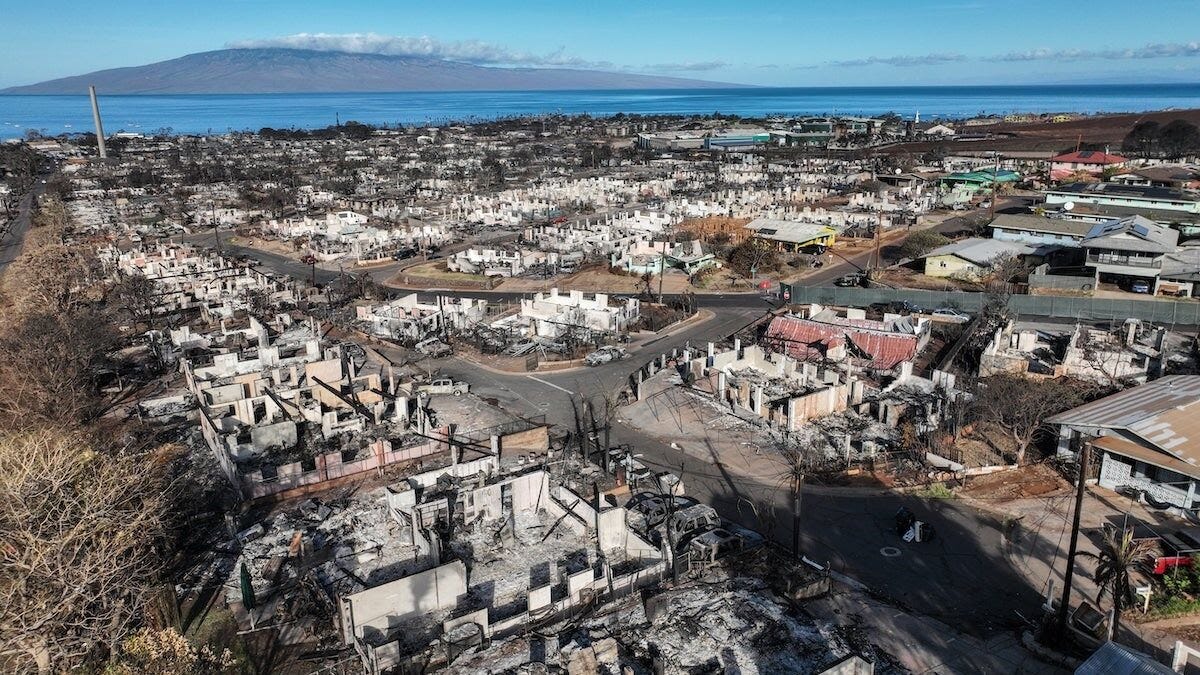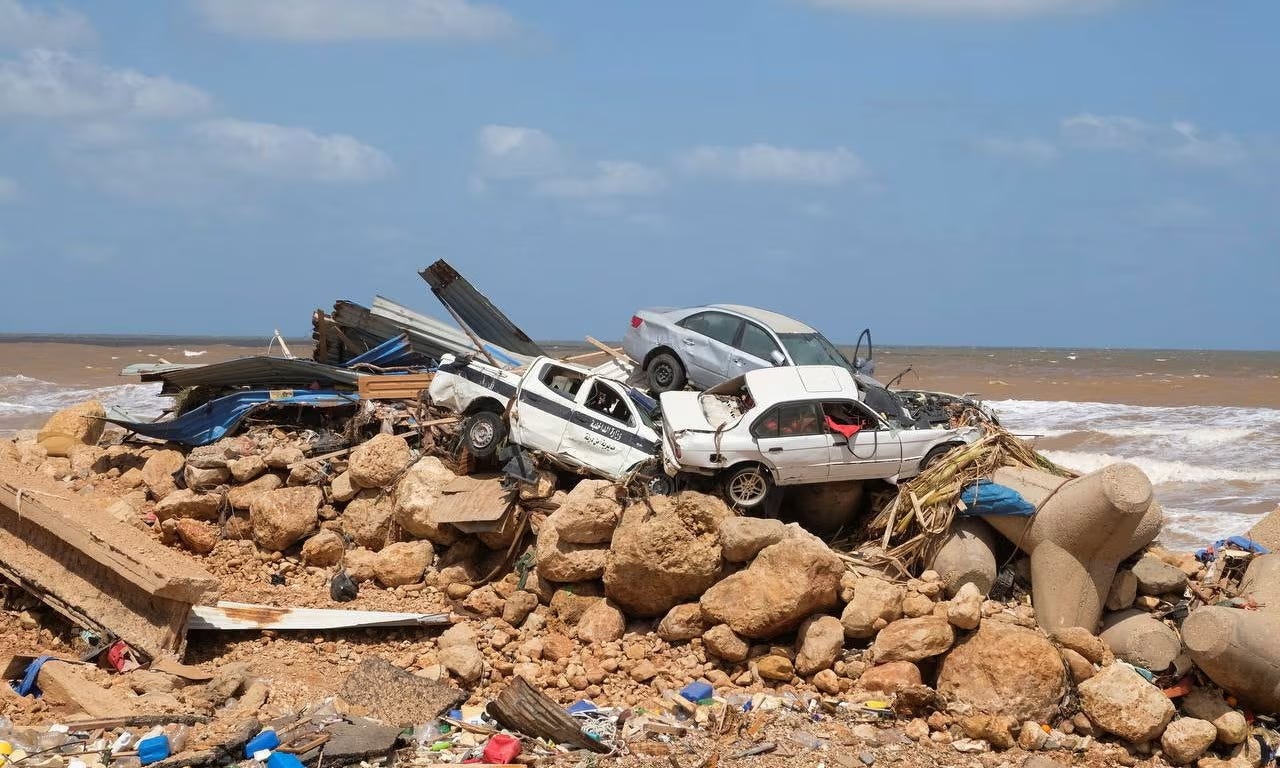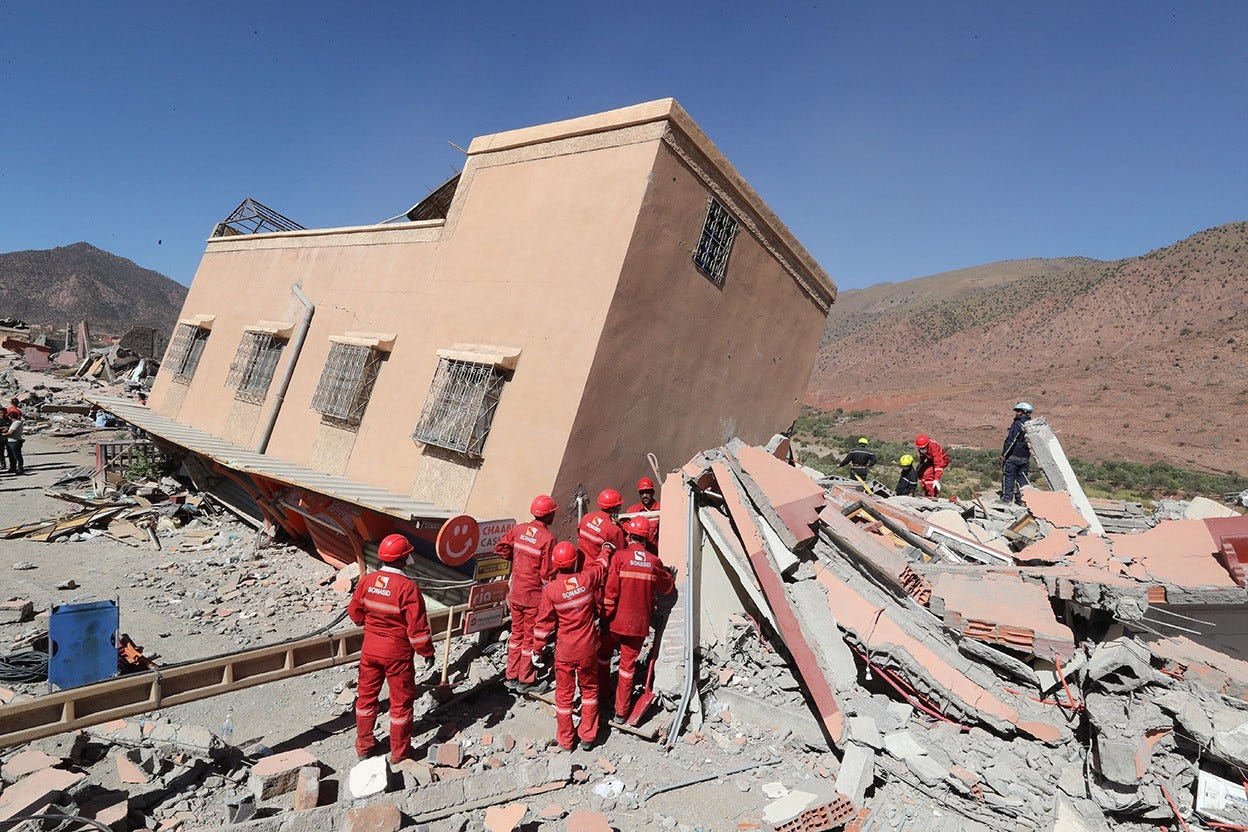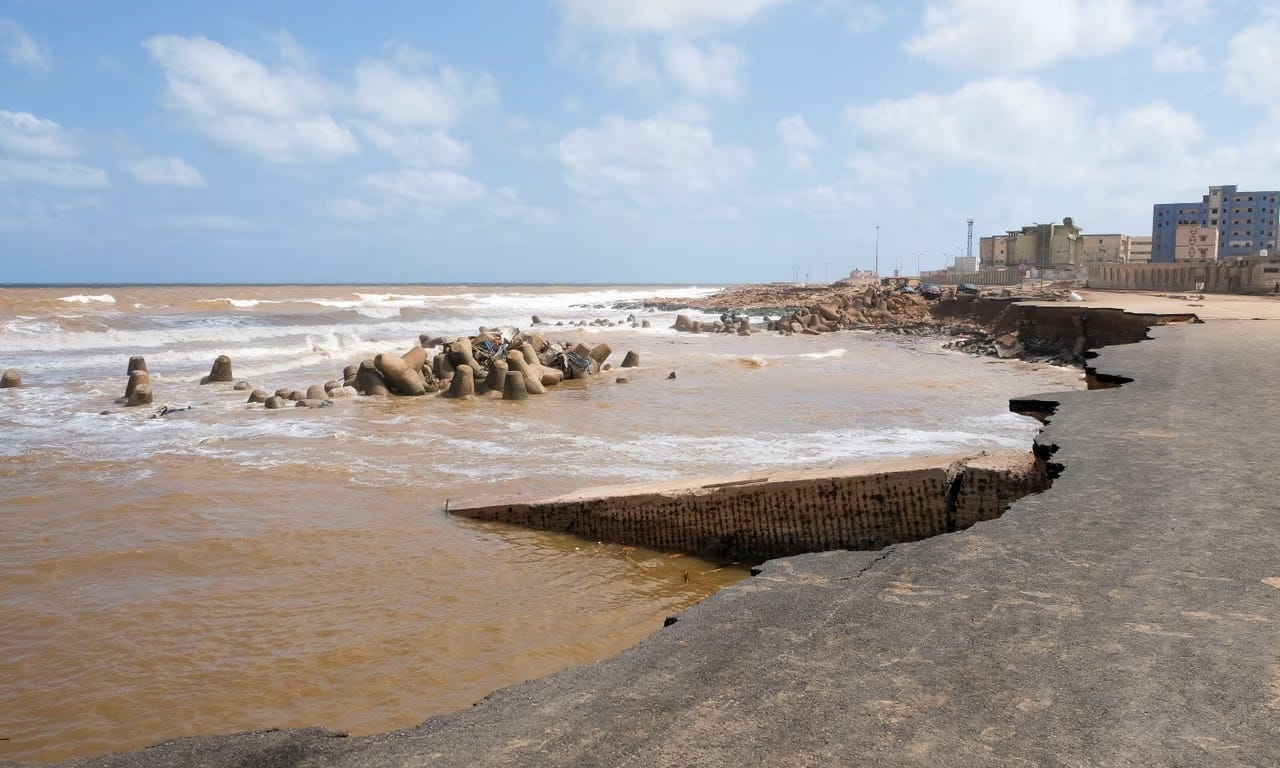Ecological grief as a motivator for action
Humanity overwhelmed by escalating effects of industrial society on Earth
Climate grief is real – I cannot keep watching images of our dying planet
Many of us have experienced grieving after the death of a family member or a longtime friend. We regard it as a form of suffering which we hope will be alleviated with time. Advice from loved ones, doctors and therapists may help us to cope by offering the solution that time will heal.
In some, like Queen Victoria, the loss of a partner may cause lifelong grief with self-imposed withdrawal and solitude.
I have now realised that I have a grief disorder which has arisen slowly over the past few decades and is likely to remain prolonged.
David Shearman is emeritus professor of medicine, University of Adelaide, South Australia
RESEARCH ARTICLE: ENVIRONMENTAL STUDIES
Earth beyond six of nine planetary boundaries
Abstract
This planetary boundaries framework update finds that six of the nine boundaries are transgressed, suggesting that Earth is now well outside of the safe operating space for humanity. Ocean acidification is close to being breached, while aerosol loading regionally exceeds the boundary. Stratospheric ozone levels have slightly recovered. The transgression level has increased for all boundaries earlier identified as overstepped. As primary production drives Earth system biosphere functions, human appropriation of net primary production is proposed as a control variable for functional biosphere integrity. This boundary is also transgressed. Earth system modeling of different levels of the transgression of the climate and land system change boundaries illustrates that these anthropogenic impacts on Earth system must be considered in a systemic context.
https://www.science.org/doi/10.1126/sciadv.adh2458
“Climate change does not respect border; it does not respect who you are — rich and poor, small and big. Therefore, this is what we call ‘global challenges,' which require global solidarity.” ~ Ban Ki-moon
'Climate Grief' Is Real and I've Got It Bad
A new report suggests a "high likelihood" of civilisation ending by 2050 due to climate change. If you've slid into a state of abject despair, you're not the only one.
There’s been a lot of talk in the media recently about "climate grief": the sense that what climate change could bring is so massive, and so devastating, that people have begun to mourn; to slide into a state of abject despair.
Well, I’ve got it bad.
On some level, I am thinking about climate change all the time. I think about it every time someone in my life has a baby, and I wonder what the world will be like when that baby is the same age as me. I think about it every time I hear people talk about the weather. I think about it when I throw anything away, and I picture the landfill it will eventually be tipped into somewhere. When I read that climate change might end civilisation in my lifetime, I was sitting in the British Library, surrounded by humankind’s greatest works of literature. I felt like I’d been punched in the stomach.
In Freud’s essay Mourning and Melancholia, he says that grief and depression are similar experiences, except that with depression your existential self unravels, alongside all of the emotions that result from loss. Climate grief is more like depression than bereavement. You do feel a sense of loss, because things are dying and you’re reminded of it everywhere, but you also have the madness that comes with mental illness. You are acutely aware that you see the world in this new and terrible way, and that it is intensely real, but that this awful truth isn’t reflected back at you in the world anywhere.
The scant attention given to climate change evokes another characteristic of depression: rage. Depressives often talk of being angry at the world, and people around them, for not acknowledging the enormity of their despair. I am trying not to be angry with everyone about climate change. I remind myself that human minds aren’t rational, that everyone is busy just trying to survive, that the media has done such a terrible job of conveying the urgency of the situation that it’s no wonder people don’t seem to think about it all that much.
Rebecca Solnit once wrote that “hope is not a lottery ticket you can sit on the sofa and clutch, feeling lucky. It is an axe you break down doors with in an emergency”. I have activist friends who used to read that sentence out to me for inspiration, and I would nod along without really understanding what it meant. Now I get it. Hope is not the act of fantasising about something wonderful happening; it’s a survival instinct. Hope doesn’t replace despair, it rebels against it.
The truth is, how we react to climate change is still up for grabs. How bad it gets and the kind of world we build from it is our decision to make. We shouldn’t suppress climate grief, but expand it out and use it as a gateway to action. Hope is the axe you break down doors with in an emergency. But first you need to recognise that the house is on fire.
Ellie Mae O'Hagan
Ecological Grief as a Response to Environmental Change: A Mental Health Risk or Functional Response?
“His thoughts are preoccupied with the wanton destruction of treasured landscapes around the globe, leaving only ravage and desolation. During periods of profound distress, he feels intense visceral pain and mental anguish. He has withdrawn from people he cares about and those with whom he used to spend his recreational time. He has the feeling that he holds no sense of purpose without his cherished natural environment.”
https://www.ncbi.nlm.nih.gov/pmc/articles/PMC7830022/
U.S. Sets Record for Billion-Dollar Disasters in a Single Year, With Almost Four Months to Go
With nearly four months still to go in 2023, the U.S. has already set a record for the most natural disasters that have cost $1 billion or more in a single year.
Since 1980, there have been 371 climate– and weather-related disaster events in the U.S. with costs and damages reaching or exceeding $1 billion, a press release from the National Oceanic and Atmospheric Administration’s National Centers for Environmental Information (NCEI) said. The estimated costs include a consumer price index adjustment. Altogether these disasters cost more than $2.6 trillion.
Is Our Planet at the Point of No Return?
Overwhelmed by all the disastrous forecasts? You’re not alone. To help break down this multifaceted issue that intersects with politics and enormously complex science, Katie recently sought help from an excerpt. She spoke to Daniel Swain, Ph.D., a climate scientist with UCLA and the National Center for Atmospheric Research. Since he studies extreme weather events and how they change in our warming climate, he answered all her burning questions about why this summer has unfolded so disastrously and what it would take to change this trend.
Morocco earthquake: 'We need help from whoever will give it'
In the tiny village of Algou, high in the Atlas Mountains, screams came from under the rubble in the terrifying moments after the earthquake.
But as the hours passed and with no specialist rescue teams appearing to assist the desperate efforts of the villagers, the screams turned to silence.
Three days on, the Spanish firefighters who were the first professional teams to reach the devastated community hoped time had not run out.
As they briskly picked their way through caved-in streets and collapsed archways their experience told them there was, however, no hope.
The grim reality was reinforced by the reaction of their dogs. Igor and Teddy had been trained to bark when they found signs of life.
The silence was deafening.
"There is nothing we can do here," said Juan Lopez, a firefighter responding to his second-ever earthquake.
https://www.bbc.com/news/world-africa-66782264
Why was the Morocco earthquake so deadly?
The quake, which has killed thousands, was unusually large for Morocco and struck a region where most buildings are not earthquake-resilient.
Morocco is dealing with the aftermath of its most devastating earthquake for decades. The tremor, which hit on 8 September in the High Atlas mountain range, around 70 kilometres southwest of Marrakesh, has killed more than 2,800 people, with thousands more injured. The death toll seems likely to rise as rescue and recovery efforts continue. Why was the quake so deadly?
Multiple factors have contributed, according to seismologists and disaster risk-reduction specialists.
The first was magnitude. At 6.8, the earthquake was not huge — the one that devastated parts of Turkey and Syria in February, for example, was magnitude 7.8. But it was unusually large for Morocco. “It’s exceptional for the region,” says Rémy Bossu, secretary-general of the Euro-Mediterranean Seismological Centre in Bruyères le Châtel, France.
Northern Africa is moderately seismically active. Tremors are caused by the ongoing collision of the African and Eurasian tectonic plates. “The collision explains the seismicity from Turkey to Gibraltar,” says Bossu.
https://www.nature.com/articles/d41586-023-02880-3
‘Sea is constantly dumping bodies’: fears Libya flood death toll may hit 20,000
Full scale of devastation in north African nation still not clear as aid agencies struggle to reach cut-off areas
International aid is slowly starting to reach the devastated port city of Derna as questions are raised over how as many as 20,000 people may have died when Storm Daniel hit the northern coast of Libya on Saturday night.
Ten thousand people were declared missing by official aid agencies such as the Libyan Red Crescent, but the ominous higher estimate of 20,000 deaths came from the director of al-Bayda medical centre, Abdul Rahim Maziq.
Corpses still litter the street, and drinkable water is in short supply. The storm has killed whole families and, with the remoteness of some villages and the rudimentary nature of municipal government, it will take time for the death toll to be confirmed.
But the scale of devastation appeared even worse than officials had initially predicted. The “sea is constantly dumping dozens of bodies”, said Hichem Abu Chkiouat, the minister of civil aviation in the administration that runs eastern Libya, adding that reconstruction would cost billions of dollars.
https://www.theguardian.com/world/2023/sep/13/libya-flood-death-toll
Emergency Response
UNICEF RUSHING URGENT AID TO FLOOD VICTIMS IN LIBYA
UNICEF is reaching children and families with emergency supplies after Storm Daniel swamped northeastern Libya, collapsing dams and washing away entire villages.
https://www.unicefusa.org/stories/unicef-rushing-urgent-aid-flood-victims-libya










